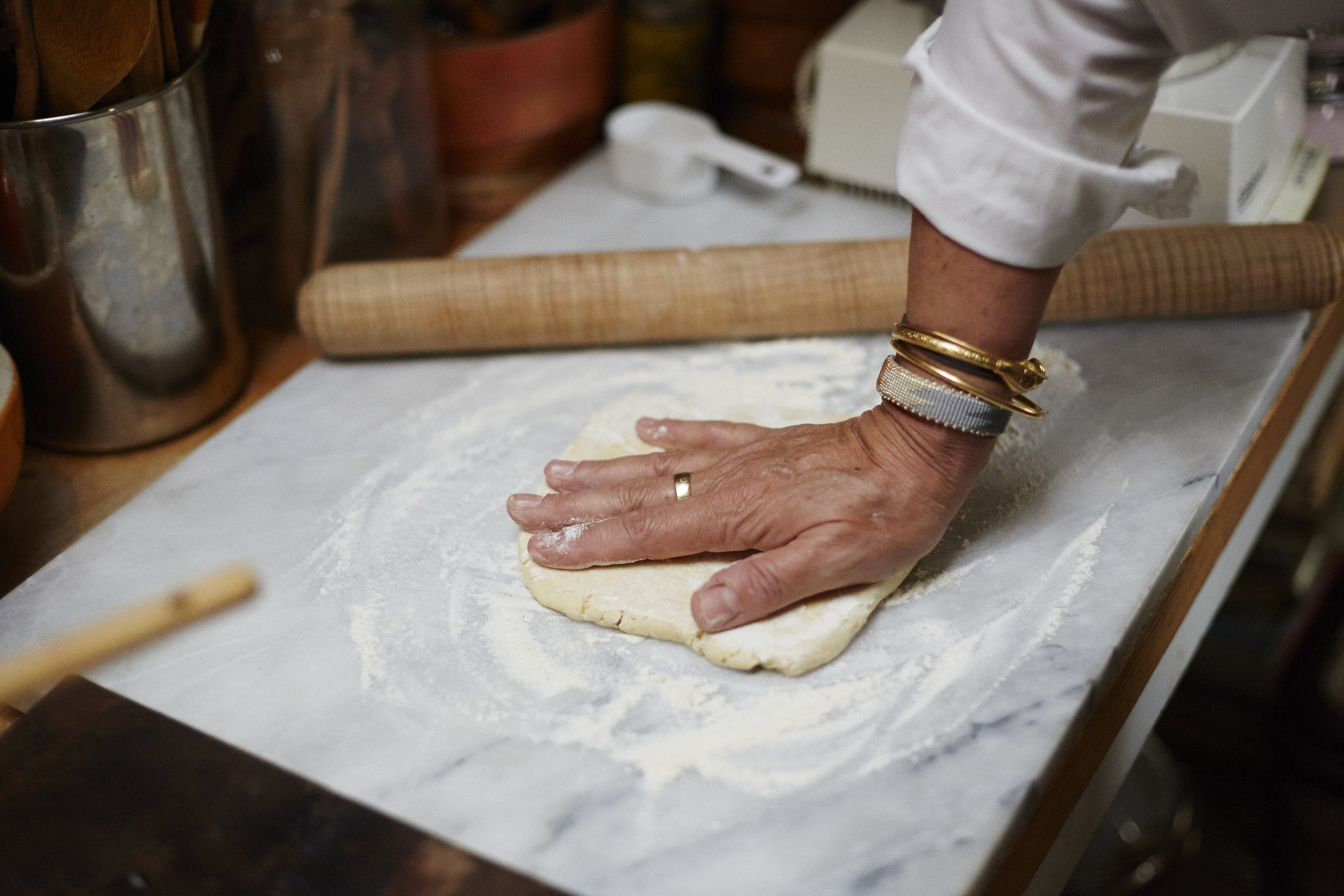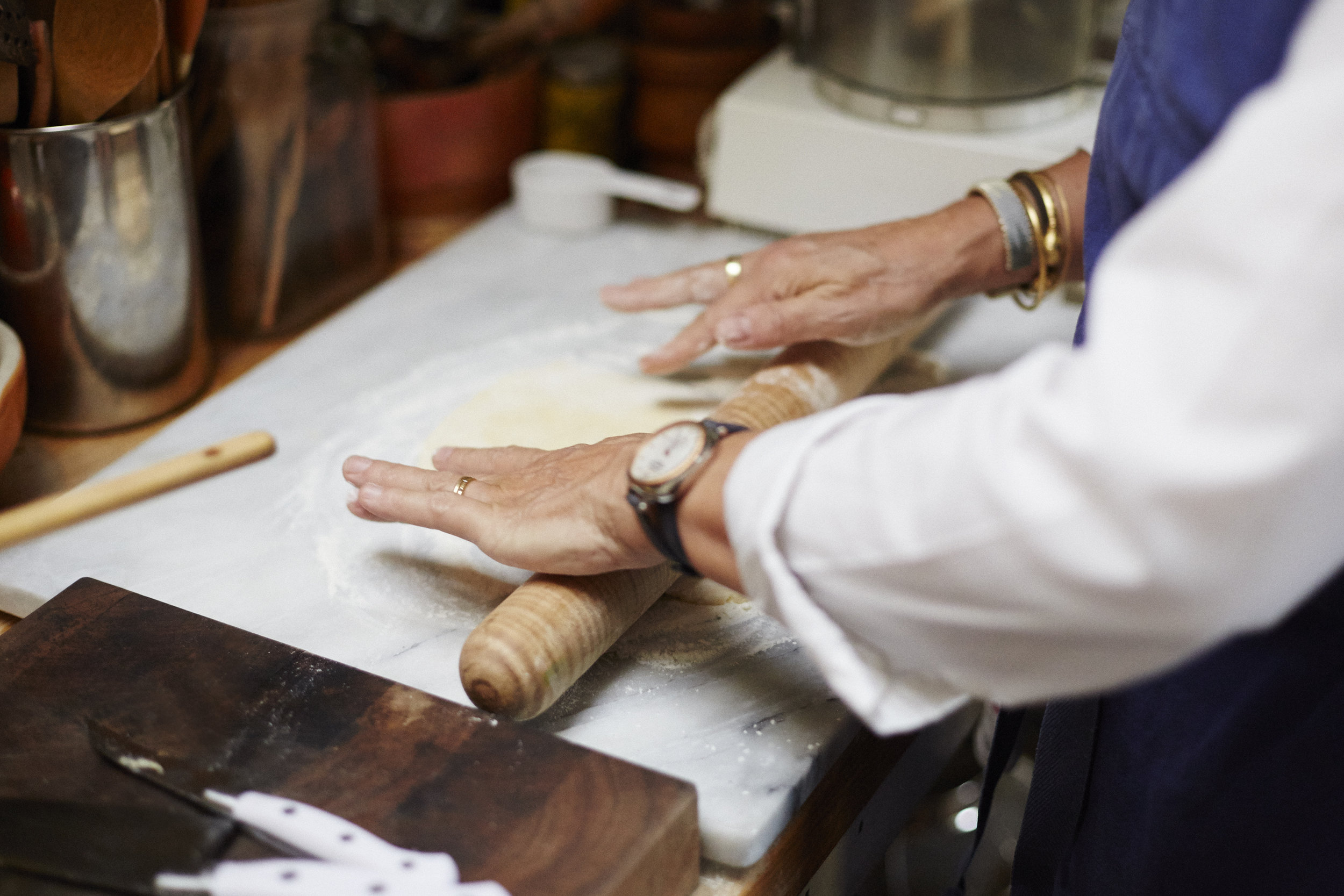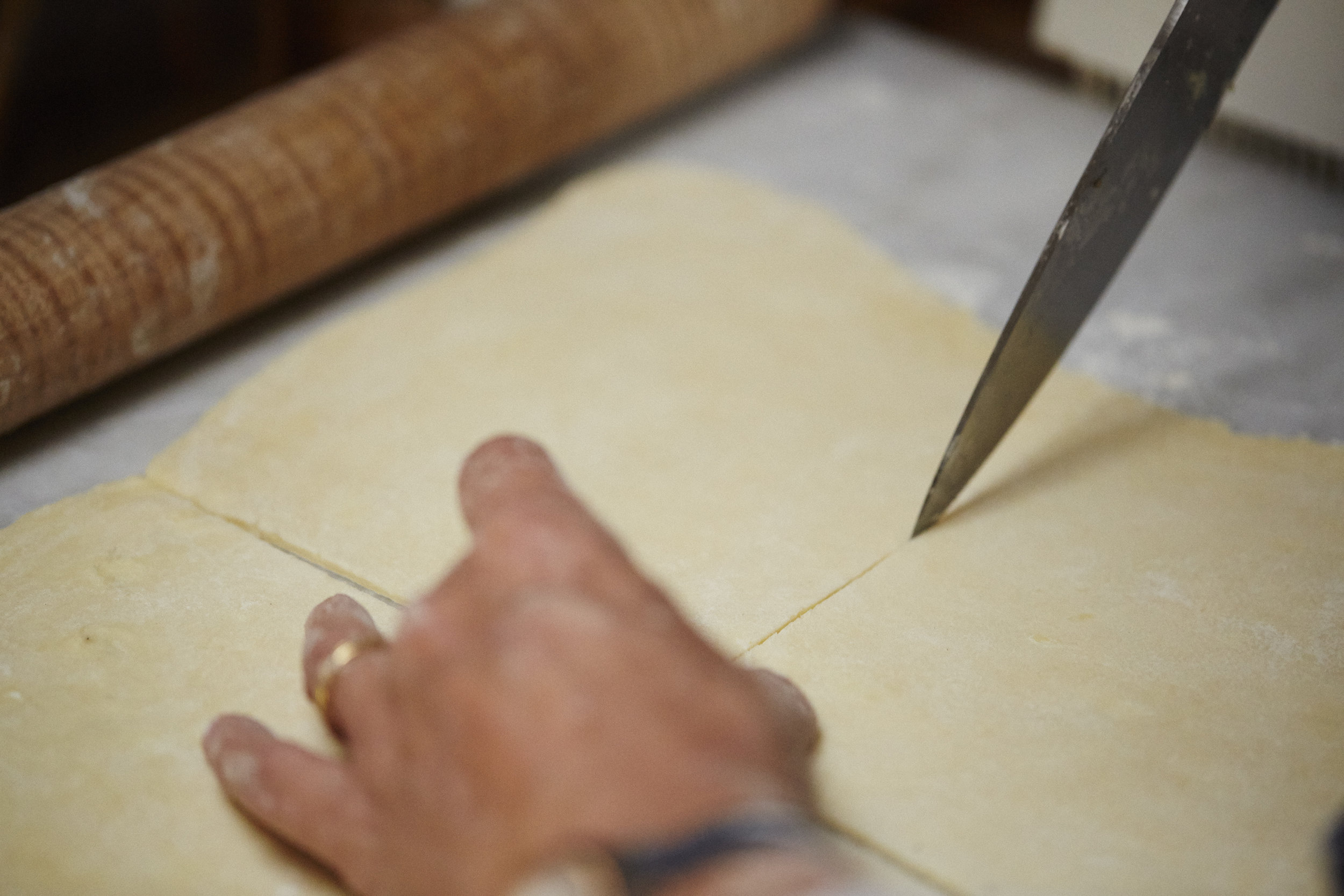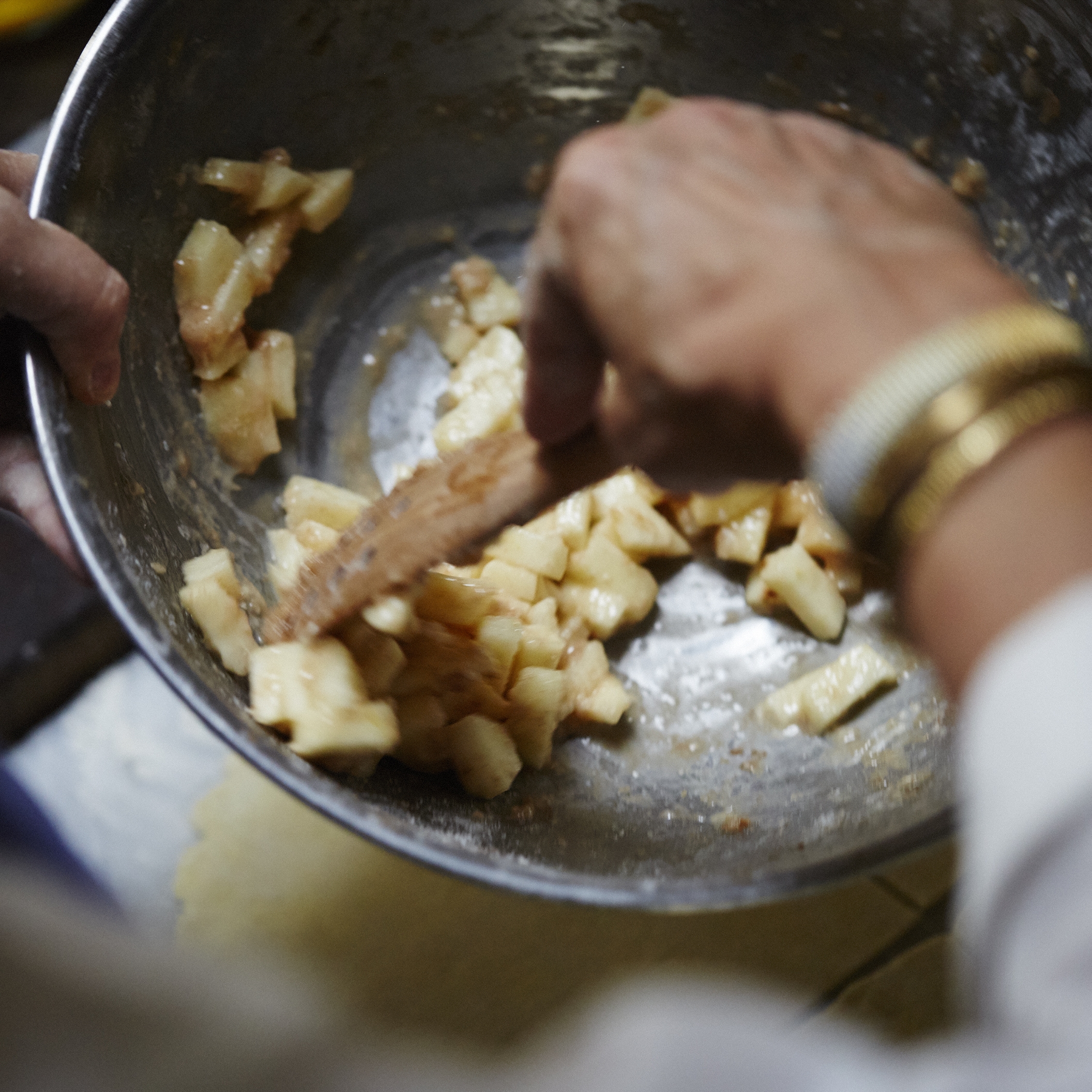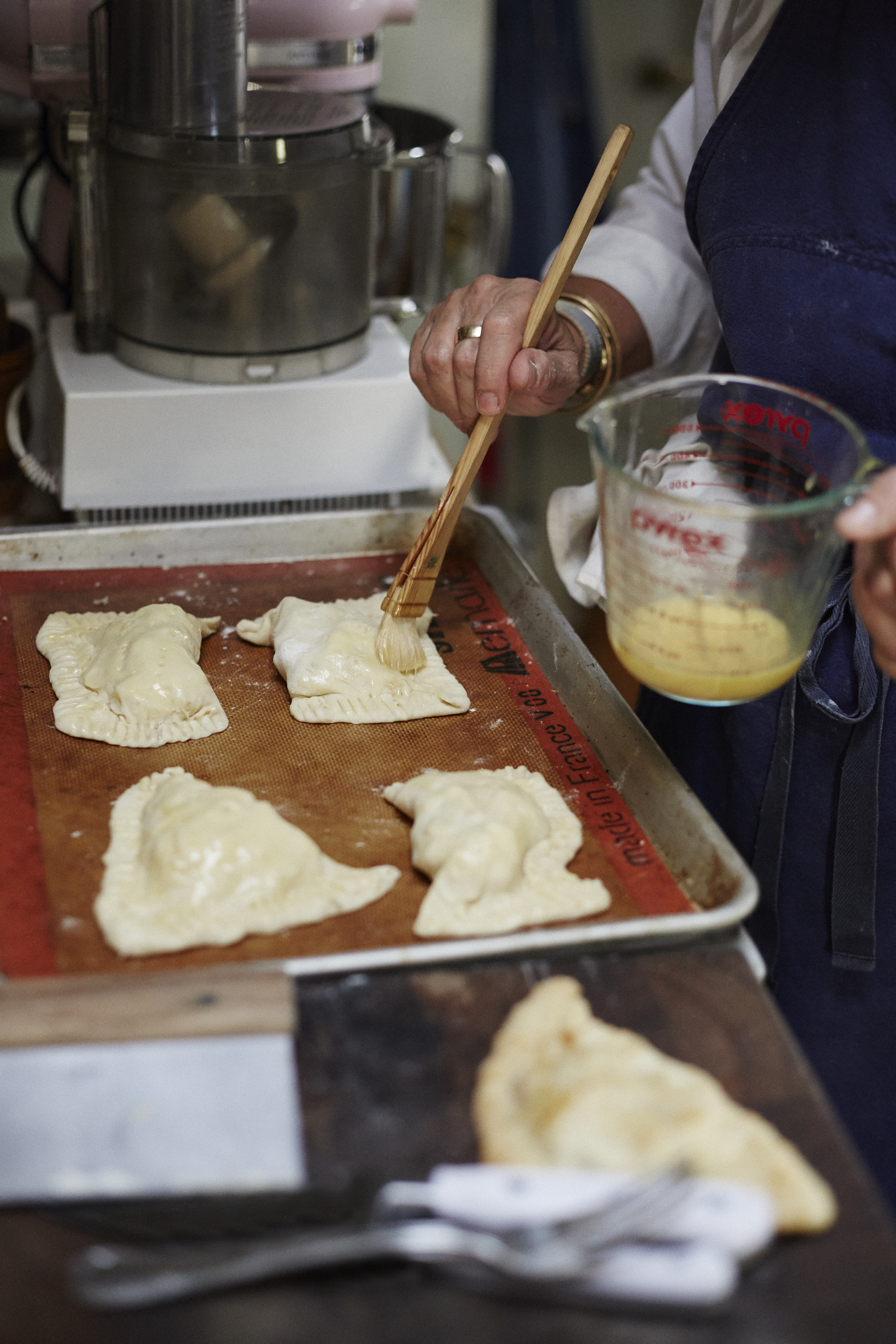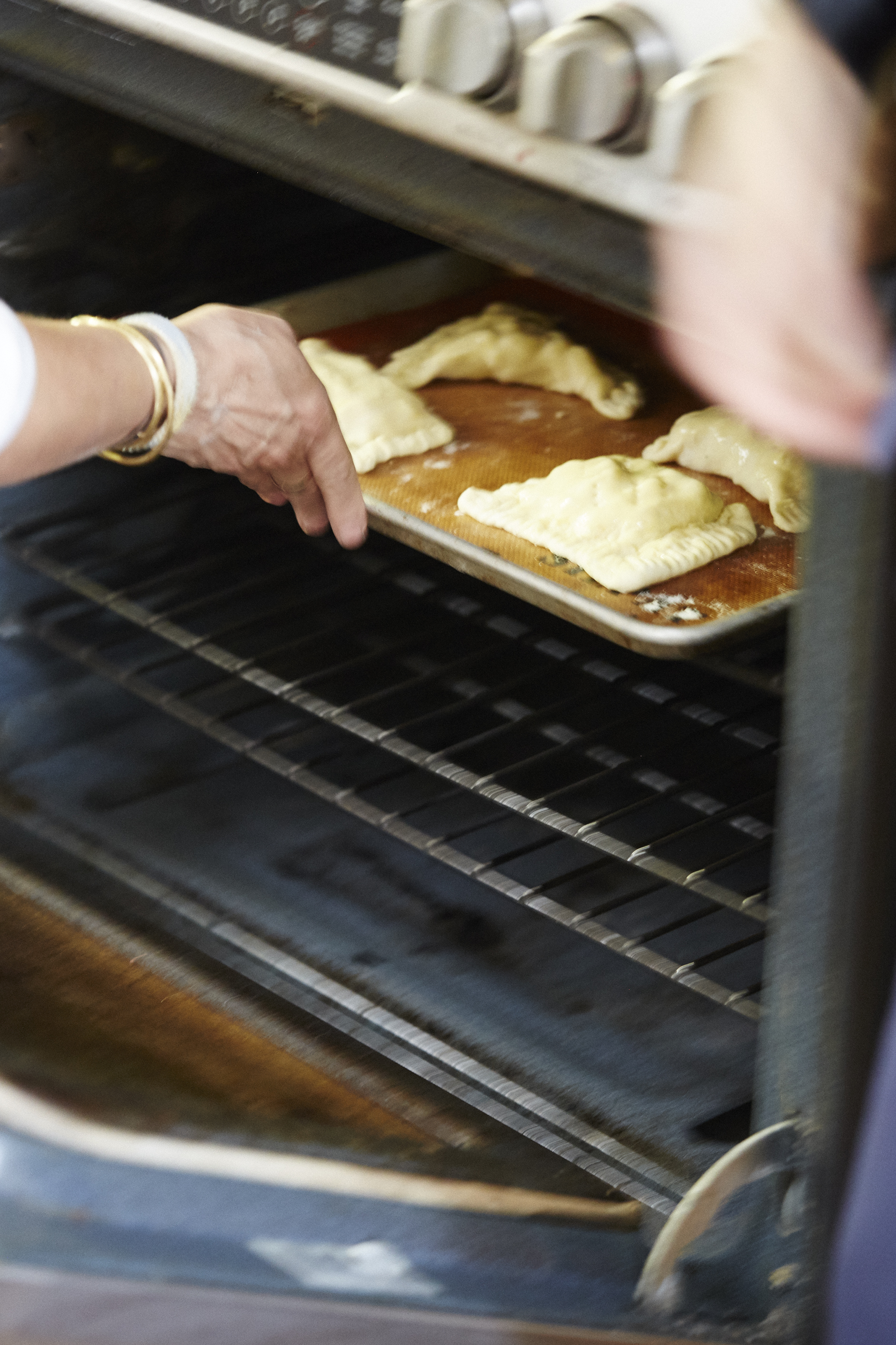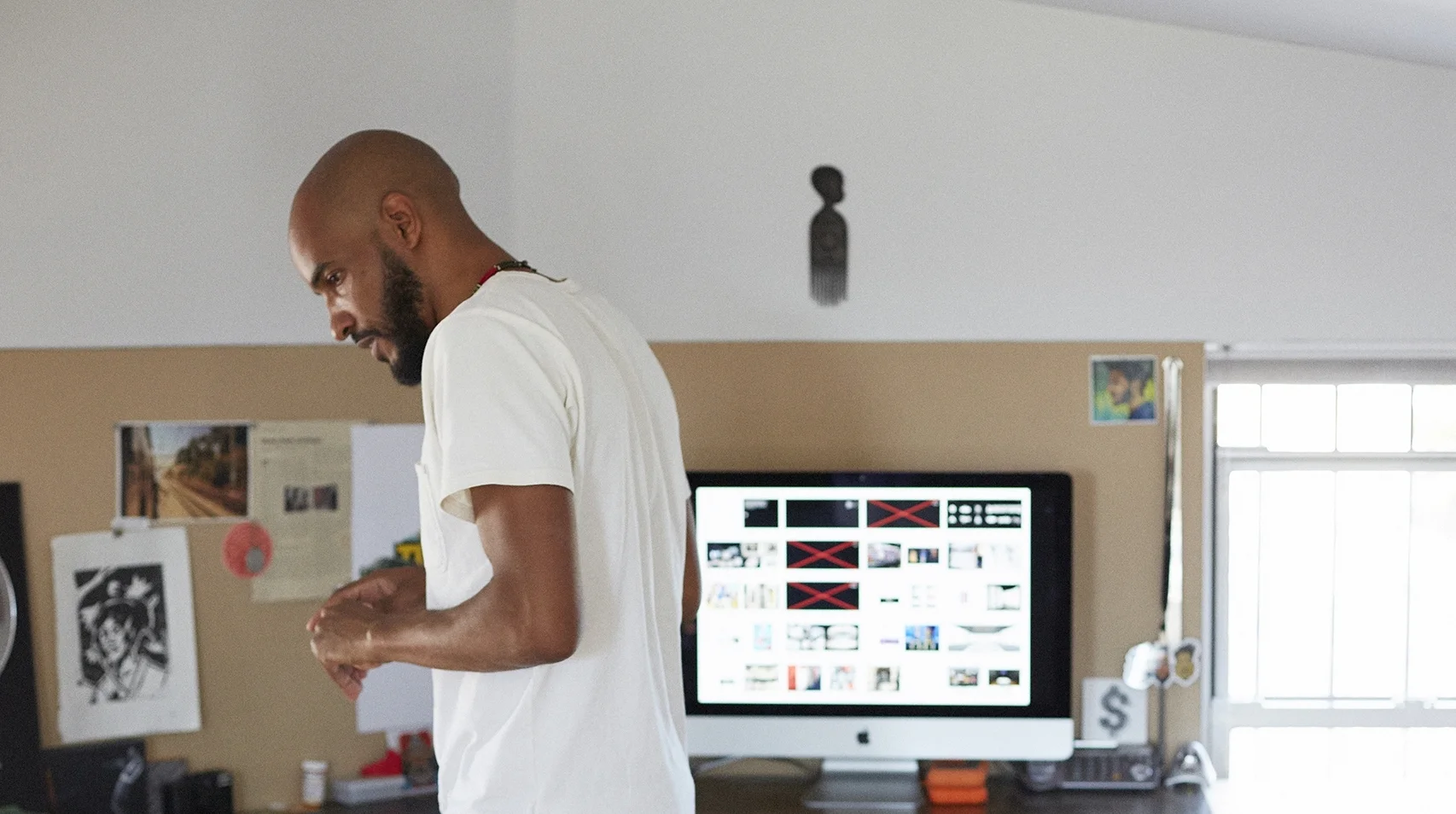WORDS: Yahdon Israel PHOTOGRAPHY: Julien Roubinet
To Lucinda’s paternal grandmother, Mary, there was only one way to cook meatballs: drop them, uncooked, into a bubbling pot of tomato sauce, until the sauce and all its contents could marry the meat, making it one. Lucinda’s grandmother’s sister-in-law, Aunt Josephine, saw it differently. The real way to cook meatballs was to brown them first, then pour the sauce on top. Any other way was absurd.
Happening in Lucinda’s grandmother’s kitchen was something deeper than a case of too many cooks. What happened was the inevitable result of two sides of a family learning to become one—and the necessary chaos of what that learning curve looks like. It was in these conditions—sitting on her grandmother’s knee, surrounded by family on all sides, watching them fight over how to correctly make meatballs—that Lucinda Scala Quinn learned how to cook.
The memory of Mama Mary and Aunt Josephine arguing was never forgotten. One because they never stopped. Two because of what the arguments taught Lucinda about food and family: when dealing with either, there’s always going to be chaos. The best thing she could do was find a way to embrace it. It’s taken her over 30 years of applying this lesson to learn it, in the kitchen and out.
In addition to once serving as the former Senior Vice President and Executive Editorial Director of Food and Entertaining for Martha Stewart, Lucinda is also a wife and a mother of three boys. With high demands tugging at every thread of your life—professional, personal, interior and otherwise—the wonder isn’t why Lucinda hasn’t fallen apart; it’s the fact that she’s kept it together for all these years—her career, her marriage, her family, and most of all, her kitchen. Keeping and bringing family together is how she developed her series of cookbooks, Mad Hungry. In each, Lucinda returns to the question of how home-cooked food can mitigate the potential disasters of our lives, making us one with them.
It was a message that deeply resonated with the subconscious of Americans everywhere—so deep, she was given her own television show. The show served its purpose but had its limitations. How do you accurately represent the chaos of a kitchen—or life in general—in the perfect world of television? It was a question Lucinda could only answer with leaving her show and Martha Stewart to go into business for herself where she could become the arbiter of her own universe.
As much as this is a story about Lucinda, it’s also a story about family. About how the roughest patches with them can be smoothed over a good meal; about how they can annoy us to no ends but still love us with no limits; and about how important they can be to our ever-evolving personhood. If Lucinda is the face of the Mad Hungry Empire, her family is the body. I met up with Lucinda and her eldest son, Calder—who works with Lucinda—at her cozy Upper West Side apartment where she talked about her first make, why she cooks, what social media is teaching her and why, when it comes to the business of food, it’s best to keep it in the family.
What was the first thing you remember making?
I was raised in a big Italian family, where food and wine was a huge thing. My Italian grandmother, on my father’s side, would line up all of her grandchildren in the kitchen on a Sunday morning, where she’d have us make pile of yeasted dough. She would rip off a tiny little piece of dough and give each of us a piece. We were then told to make whatever we wanted. There she was, standing over a big vat of oil and she would fry the dough, dip it in sugar and give it to us.
She called it “pizza frizza.” Now that I'm older I know it’s “pizza frita,” but then I thought it was “frizza.” it’s kind of like zeppole that you get at a market. But I loved the fact that what we were doing was so hands on.
Why do you do what you do?
Cooking is my connective tissue. I'm very much an evangelist for home cooking because I think that the rewards are extraordinary. Whether you're really psyched and happy about making a a birthday dinner, or you're really terribly sad and you don’t know which way to turn, kitchens are safe havens. You can just stand up, start chopping onions and something begins to happen where you give you give to others.
When I had three young kids at home I realized how much the dinner table brought us all together. At the dinner table, they might've been mad at each other or mad at me and not want to talk but they were hungry. So they would sit down to eat and ultimately someone would say, "Pass the potatoes," and that would go into something else that was deeper. And I saw that happen time and time and time again.
The family table is like a one-stop shop for wellness. It’s not only where you eat and nourish your body. It’s where you learn to socialize yourself into a community. Where you learn to try on your opinions. This is actually the subject of Mad Hungry: 120 Essential Recipes to Feed the Whole Crew, which is, yes we need food for our bodies, but we also need for our souls.
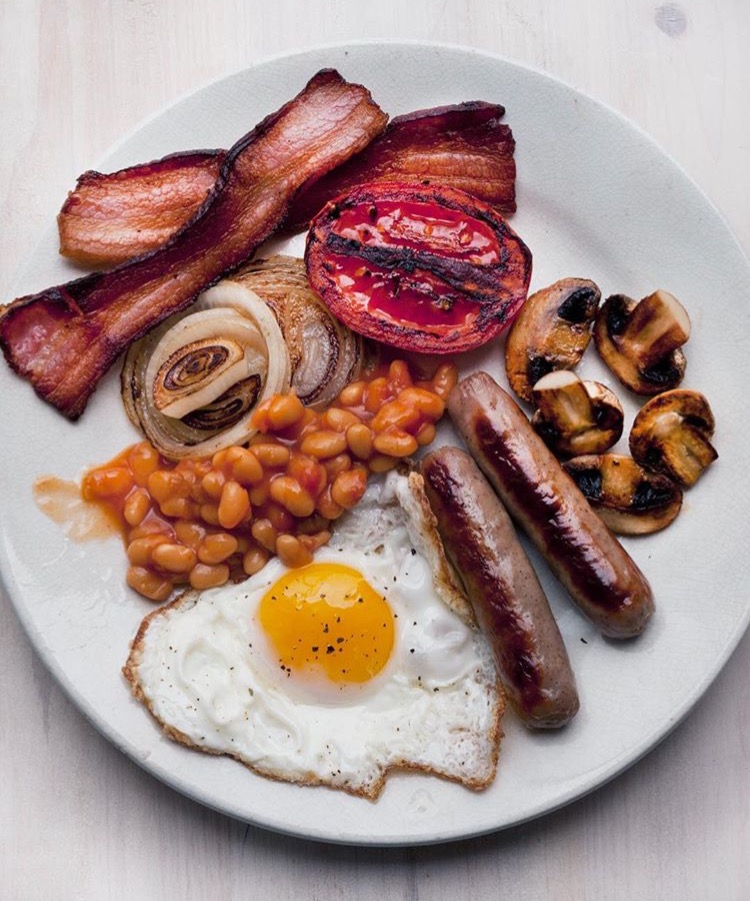
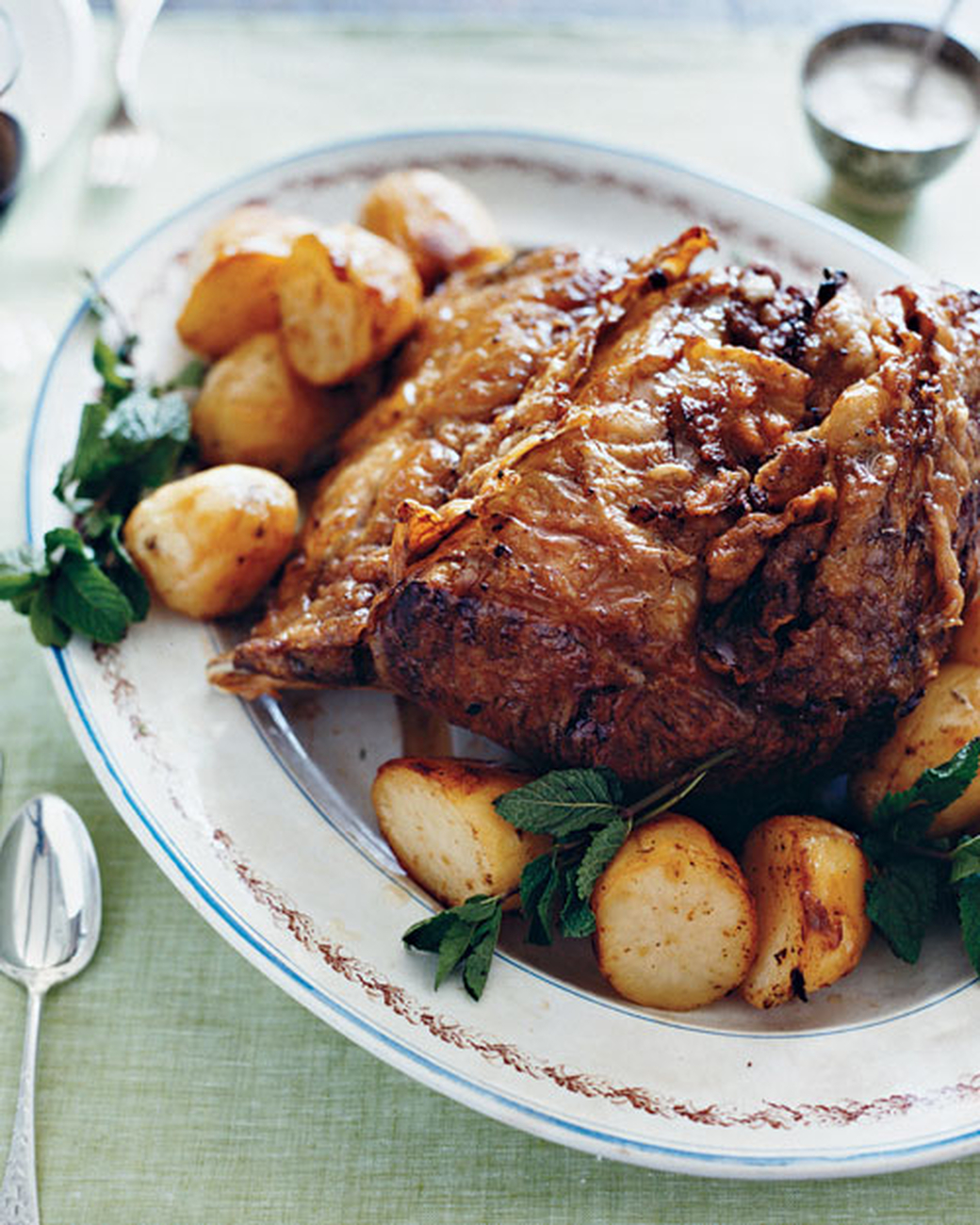
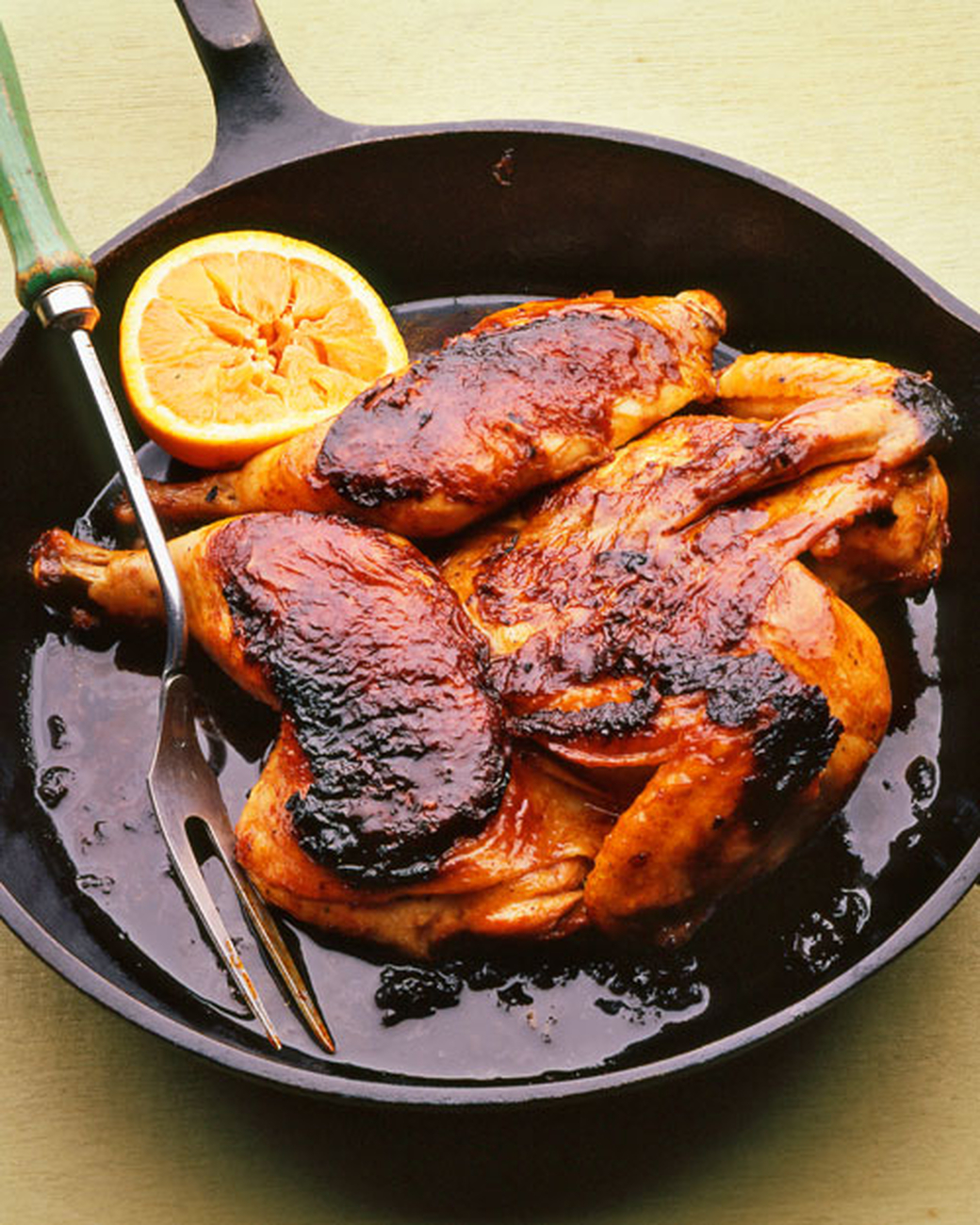
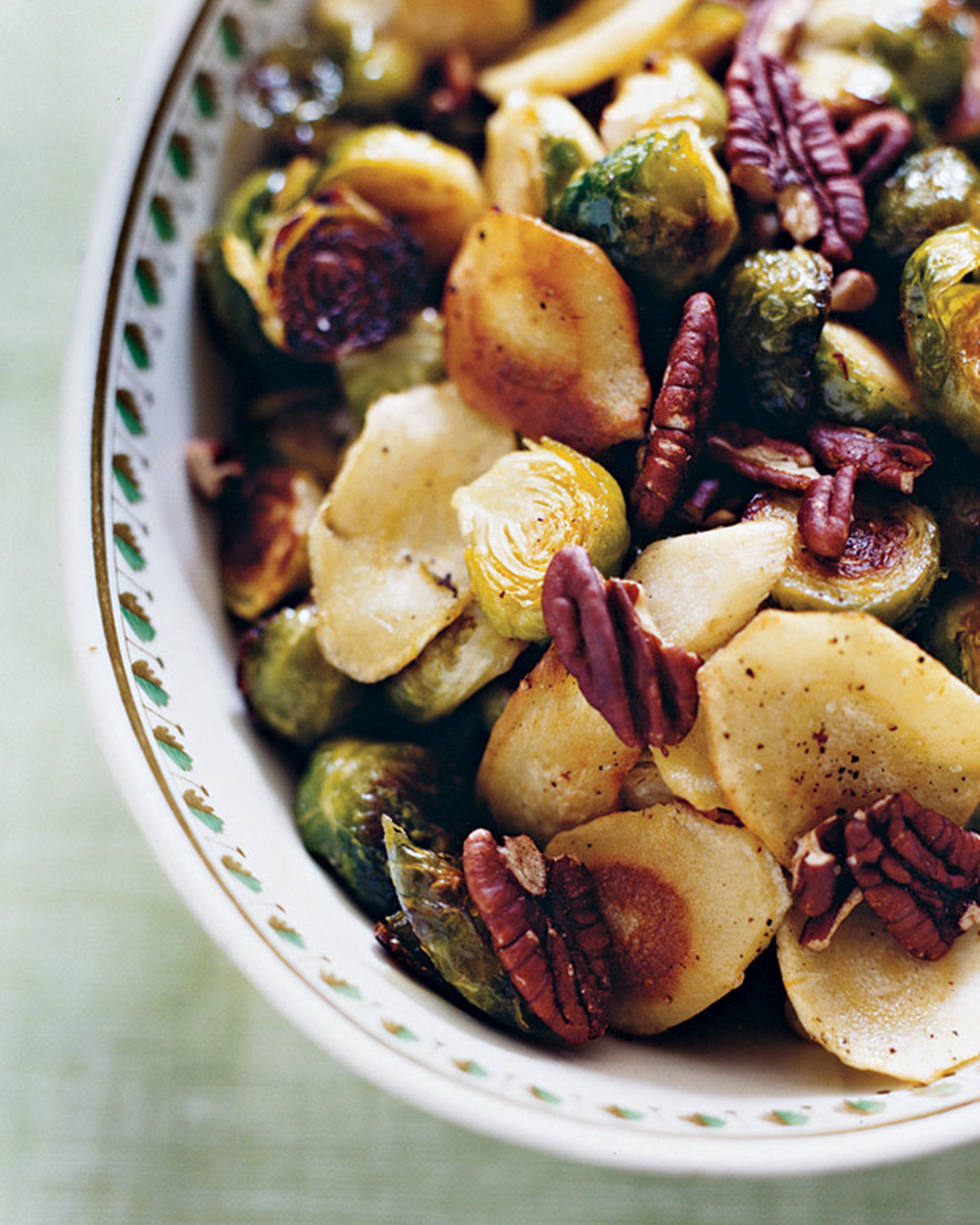
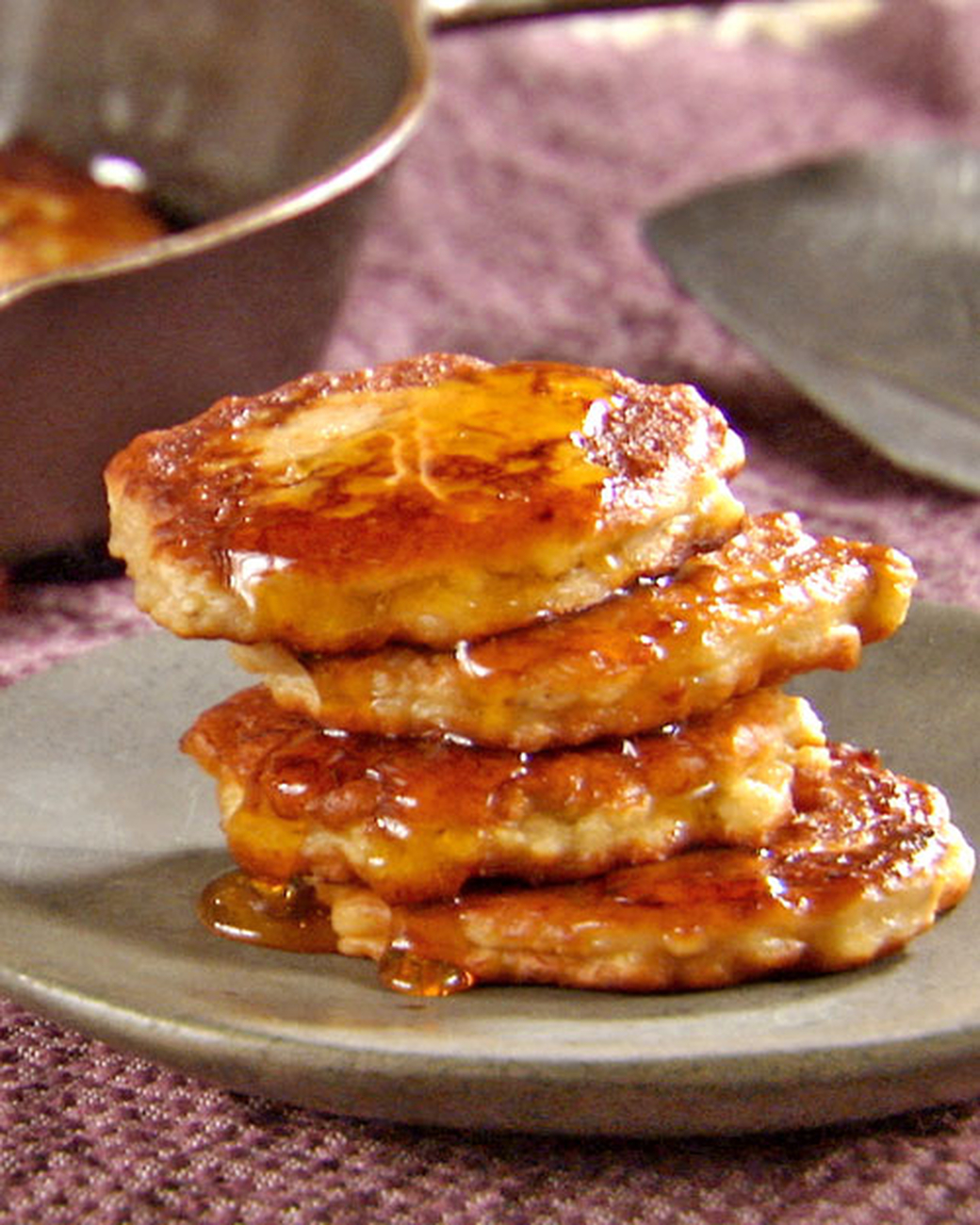
Who or what inspires you to make?
The women in my family inspired me a lot because they're so real. And strong. My father married my mother, who was this tall, beautiful blonde WASP, which wasn't the traditional thing to do for a man from a old-style Italian family. He brings my mother home. Many of the people in his family is skeptical about her ability to cook Italian food, and she ends up learning how to cook their food better than they did, in a way.
Without losing the essence of the dishes, my mother figured out ways to feed more people quickly. She was efficient. Like the meatballs, my father's family had a particular way of cooking everything. When they'd make stuffed artichokes, they'd trim every artichoke and stuff them one by one. My mother was basically like, "Nope." She got a bunch of artichokes and made this giant artichoke casserole. She put all the artichoke hearts in the casserole, dressed them with bread crumbs and all that stuff that goes in there. Suddenly, my mother was able to feed more people easily and she did that time and time again.
She was feeding a family of six with home cooked meals at a time when frozen food and TV dinners were being foisted upon American housewives. She stuck to cooking dinner for your family, which is what the core of my work is.
One time when I was on TV, I was making these these little meatball sandwiches that I called “Rose’s Meatball Sandwiches.” Rose is my mother's name. And when I got off the air my father called me. First thing he says to me, “Those were your grandmother's [Mary] meatball sandwiches.” To me they were my mother's because I'd been making them the way I saw her do it.
That situation inspired the way I think about food because, when you pass things down, people adapt them to their own way of doing things. In a way that makes sense to them. So I'm never hesitant to give out or publish a recipe, or give away secrets, because cooking is in the hands of the beholder.
Any recent inspirations for what you do now?
I give a lot of credit to this younger generation because when I was my eldest son’s age—early to mid 20s—the goal was to get a good job with a decent health insurance policy. You didn't really ask if you were happy enough. You just kept doing it. Now I see my other sons and they're like, "I don’t like this. I'm out. I'm going to go try this, or do that." That's really inspiring to watch because I realize that's what I want for myself now. That freedom to pursue what makes sense to me as a person, and not be discouraged by where that takes me.
What has been one of your more meaningful mistakes as a Maker?
Simplicity is the height of sophistication. Yet, you don’t have the confidence to understand that when you're young. There were times when I overdid things because I thought I had to. Or added layers on because it seemed like it would be better, cooler or more of a player if had that a lot going on. What I know now is that the most exciting is the most stripped back. The most essential.
It comes right back down to cooking, you know? I'm always asking myself what can I make that will combine the most powerful natural flavors with the fewest amount of ingredients. Often that comes down to mastering the technique and quality of ingredients—and restraint. Just having the confidence to know, if you have a beautiful peach or a tomato you know, maybe it’s a sprinkling of salt or a dusting of herbs that takes it to a place that is just the most sensuous experience you can have. The smallest things often have the biggest impact.
What's the last thing you made?
Apple pocket pies. They're good and really fun to make. You peel and slice a couple apples. Toss with some sugar, flour; a pinch of salt and cinnamon. Then you roll out your favorite pie dough. Cut it in squares. Place some apple filling in the square. Fold them over, pinch the edges of the dough closed with a fork. Brush them with an egg wash (egg beaten with a dash of water). Bake at 375 for 25 minutes, and you're ready to go!
What's cool about your Instagram page, how you've used it to capture your philosophy on food, life and family in a way that's authentic to you. How do you think about social media, its potential?
Instagram is my go to because I'm a very visual person. If you visit my page, Mad Hungry, you won’t see a bunch of famous people. It's usually the quotidian of everyday life.
I'm really psyched sometimes when I see how connected people are to my food, and how invested people are to your journey through the everyday. People will say to me all the time, especially when I'm involved with cutting deals and stuff, "Well if you had more followers..." But I don't let those conversations get to me because I know that there is no truly accurate metric for what I'm doing. I know I never paid for a follower. I just put out stuff that I think people will learn from and use to feed their own families and let the work speak for itself.
I came of age in a time when you did something. You acquired a skill. You made a shirt. You fixed a car. You acted in a scene. You wrote a book. You contributed something to the world that was bigger than you. Sometimes those conversations about followers make us forget what's really important. Actually doing something. What I most appreciate about social media, or at least the way that I use it, is that it's on my terms. With that people can see that you don't have to follow any one else's formula to be successful. You can make your own.
What has 30 years of making taught you about yourself?
I'm the sister of many brothers and I have many sons, so I learned—and my husband also said this to me early on: you have to embrace the chaos. If you don’t embrace it, you're just going to drive yourself crazy.
We're infinitesimal on this planet and I've had the privilege of being alive this long. I want to feel every moment that I'm alive right now. Or at least striving and practicing to. So much of our lives are driven by what we think we need to live versus what we really need. If there's anything I hope my food does it's that it help people see the difference, and that there is one.
I've been curious about this since you told the story about your grandmother and grandaunt's legendary arguments, how do you make your meatballs?
I make them both ways.
MakersFinders is a digital platform that connects independent makers to passionate finders.
We have an app in private beta. We publish stories. We host events. And provide quarterly grants for our community of Makers and Finders.
Our team is dedicated to cultivating and connecting communities across various industries and cultures.






